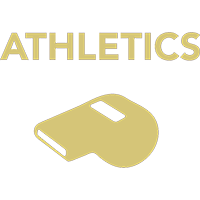About Fowlerville Junior High School
"Where Students are Achievers"
Thank you for visiting our website and learning more about Fowlerville Junior High School. We are a middle-level building with grades 6-8. We have approximately 700 students who walk through our doors everyday to get a fantastic education. Students in our school engage regularly with technology using individual Chromebooks accessible to them in every class. Our staff is highly trained and competent in areas such as Formative Assessment, Reading Apprenticeship, active student engagement, standards-based grading and differentiation. We have tailored our curriculum to accommodate the needs of our students and families as we prepare them for the high school.
Academics
Our classes include four core academic courses for each grade level (math, science, ELA, and social studies) in addition to a robust elective support curriculum. Students can choose to enroll in game design, coding, Michigan Wildlife, Digital Photography, Web Design, Forensic Science, Money Management for Teens, Physical Education, Art, Band, Theater & Drama, Computer Applications, and Advanced Conditioning just to name a few. In addition to our outstanding elective and core academic curriculum, FJHS offers a foreign language sequence which gives all students a full high school credit in Spanish, French, or German. Finally, our curriculum does much to promote our students accelerating themselves into high school courses by offering high school credit in Algebra I, Geometry, Freshman Literature and Composition, World Languages, and Earth and Physical Science.
Our curriculum is rigorous, fun, and promotes student growth. However, as a school we believe that character is the cornerstone for all other success. A student's respect, work ethic, integrity, and initiative provide a foundation for our student culture. At FJHS, our staff is committed to our students achieving success in all areas of their lives. We encourage you to stop by and learn more about our great school!
Exploratory, Core and Essential Courses
We have three different categories of courses for students to take in their schedules. First and foremost, the Core courses that a student takes are the required courses that are part of their “core” academic skills. The next category of courses are considered Essential courses and are also required as part of the student instructional sequence. Lastly, students are given the opportunity to select Exploratory courses of their preference to “explore” various interests and gain exposure to a variety of topics. The sixth grade Exploratory courses are NOT optional for students and are required.
The main difference between Core and Essentials courses are that the Essentials teachers are not apart of the Core academic team and instead teach a wider variety of students within the building. However, both are graded the same and are required in a student’s schedule. Exploratory courses are up to student choice and are also graded using the M, P or N performance level marks found in the Grading and Reporting Policy.
Getting Late Assignments Done (GLAD)
At Fowlerville Junior High School, student learning and academic achievement are two of our main objectives. Therefore, we recognize the importance of completing assignments on time and taking full advantage of each learning opportunity. The GLAD program will help promote a sense of responsibility, hard work, and an ownership of learning for students.
At FJHS we realize the power of a zero when a student fails to turn in an assignment. Receiving a zero for an assignment significantly affects academic achievement due to the critical loss of points and difficulty regaining these points. However, failing to turn in assignment is actually more reflective of a student’s behavioral makeup than that student’s academic ability. Consequently, our policy is to directly address this behavior by requiring the student to complete the assignment, rather than accepting the failure to turn it in and assigning a zero. We feel that it is a more learning appropriate practice to require students to complete the work rather than promote laziness and quitting by allowing students to not complete assignments. The GLAD program promotes academic achievement by giving students another chance to complete the work and learn the material.
Main Objectives:
- Improved academic performance by students
- Increased sense of responsibility for academic success
- Development of better study habits and higher quality work
How this will be done:
- Provide another learning opportunity by requiring students to turn in their work
- Providing a supervised GLAD room during student lunches
- Not allowing the students to “do nothing”
- Placing a higher expectation on student success
How the program works:
- Student fails to turn in an assignment or project on time. On time means the assignment is submitted on the day and period it is due and that the assignment is fully completed. The teacher will notify the student that he or she must complete the assignment during GLAD time the following day by giving them a GLAD ticket. The GLAD ticket will include the assignment details, the assigned date, and the student name.
- GLAD tickets will be completed for any missed assignments and are delivered to the main office the day prior to the assigned GLAD period. The main office will send GLAD reminders to the students the next morning. Students will use their GLAD ticket to be released for lunch two minutes early; allowing GLAD students enough time to get their lunch and complete their work. All students who have GLAD will get their lunch and report to the GLAD room immediately. The GLAD room will be monitored daily by an adult staff member.
- The assignment will be collected by the GLAD monitor and returned to the appropriate teacher the day it is collected.
- The teacher will review the assignment for completeness and quality of work.
- After 10 GLAD tickets during a marking period, students will be pulled from their elective classes to get caught up on their work that is chronically missing.
*Teachers reserve the right to utilize the GLAD room if they feel the student has not completed the work according to expectations. Extenuating circumstances will be considered by building administration.
Grading & Reporting Policy
Primary Purpose
Communicate learning and achievement status to students, parents, and others.
Secondary Purposes
- Provide information that students can use for self-evaluation and growth
- Encourage student growth and progress in learning
- Identify students for available educational opportunities and programming.
- Evaluate the effectiveness of curricular, instructional, and assessment practices and programs.
Grading Principles (The Big 5)
In an effort to meet our purposes for grading outlined above, we have identified five key principles to effective grading in our school. These are referred to as “The Big 5”, and represent the five key principles for grading at FJHS.
Principle 1 – Grades will be accurate
Principle 2 – Grades will be given consistently among teachers
Principle 3 – Grading will support learning by involving students in the process
Principle 4 – Grades will relate to clearly defined standards
Principle 5 – Grades will be determined by appropriate calculation methods and scales.
Character Grades
At FJHS we feel that it is critically important to represent student learning and academic achievement and behavior or character as equally important but separate reporting measures. While students will be given an academic grade, students will also be given Character Grades from each teacher. These grades will be given on a regular basis for the following areas in the Zangle grade book:
- Teamwork
- Work Habits
- Initiative
- Respect
Students will be given a score in each of these four areas using one of the following indicators:
M = Meets Standard
P = Progressing Towards Standard
N = Not Meeting Standard
Students who have been given an “N” mark for 25% or more of their classes in the combined total of grades given in the Character Grades area will be considered ineligible to participate in extracurricular activities including dances, activity nights, band or drama performances, or sporting events. Character Grades eligibility will function in the same way as academic eligibility and will be run on a weekly basis.
CHARACTER STANDARD | Meets Standard (M) | Progressing Towards Standard (P) | Not Meeting Standard (N) |
|---|---|---|---|
TEAMWORK | Routinely provides useful ideas when participating in the group and in classroom discussion. Almost always listens to, shares with, and supports the efforts of others. Tries to keep people working well together and on-task. | Sometimes provides useful ideas when participating in the group and in classroom discussion. Sometimes listens to, shares with, and supports the efforts of others. Is a somewhat passive team member, but contributes to the group when prompted by others. | Rarely provides useful ideas when participating in the group and in classroom discussion. May refuse to participate. Rarely listens to, shares with, and supports the efforts of others, and tends to get the group off-task. |
WORK HABITS | Completes and submits all assignments on due dates, follows directions all the time, consistently uses class time wisely, always brings required materials to class, is organized, and appearance of work is clean and neat. | Regularly completes and submits assignments as required with some prompting, usually follows directions, usually uses class time wisely, stays on task some of the time, usually brings materials to class, is somewhat organized, and appearance of work is satisfactory. | Frequently fails to complete and submit assignments as required often fails to pay attention or to follow directions, does not use class time wisely, fails to bring required materials to class, is disorganized, and appearance of work is unsatisfactory. |
INITIATIVE | Student approaches new learning situations with confidence and enthusiasm, seeks a variety of challenges and takes risks, attempts a wide variety of learning activities independently, and may exhibit leadership for their peers. | Student approaches new learning situations with limited confidence, demonstrates a generally positive attitude towards learning, sometimes accepts new challenges but takes only limited risks, attempts a limited variety of learning activities independently, and somewhat reliant on others to guide them. | Student avoids new learning situations and has a negative attitude towards learning, avoids challenges, rarely takes risks, participates only reluctantly with lots of prompting from others, and demonstrates low confidence or motivation for most activities. |
RESPECT | Actions in the classroom contribute positively to the learning environment. The student is generally well mannered towards others, listens to others’ ideas, interests, and opinions, and will help others when needed. | Contributes positively to the learning environment some of the time, acts with courtesy and proper manners some of the time, and helps others if prompted. | Level of respect interferes with learning. Occasionally uses proper courtesy and manners but often chooses not to. The student shows little concern for others' ideas, interests, and opinions. |
Cheating and Plagiarism
As students progress through junior high school, we will continue to teach them about the importance of academic integrity. However, sometimes students make a poor decision to cheat or plagiarize another person’s work. Like most things, it is most effective to prevent this type of behavior by educating students effectively about what plagiarism and cheating are. The staff at FJHS will ensure that students clearly understand what they are, how they are different, and why it is so dangerous. However, if a student chooses this path, every teacher at FJHS will process a student discipline referral for students who are cheating or plagiarizing in school. Consequences will be given via the assistant principal, and the student must then redo the assessment/alternate assessment for a grade. Students will also experience a lowered character grade for engaging in this behavior. This will provide a clear behavioral consequence for all students who engage in these dishonest practices yet still maintains a process that is conducive to providing an accurate academic grade for the student.
Extra Credit
Extra credit takes away from the core academic concepts that are taught as a part of the regular curriculum. Extra credit is especially harmful when it is awarded for things not tied to the curriculum such as bringing in Kleenex or apples, answering odd trivia questions, or anything not tied to a specific content standard. Extra credit will be used minimally if at all at FJHS, but if a teacher decides to offer extra credit, it will be meaningful and tied directly to a standard or learning goal in their classroom. Also, if a teacher decides to offer extra credit, it will be offered to all students not just certain individuals.
Grading Weights
Each classroom will have the same grading weights and categories assigned based on consistency for students. Each grade book will have two categories assigned that factor into the academic grade. The two categories are described below:
Performance Assessments
(Summative)
Unit and Course/Grade Level
Understanding and Performance
“the bigger stuff”
Major Assessments of Learning
85% of final grade
- Unit (chapter) assessments
- Unit or major performance tasks – mainly products, performances, and projects (e.g., essays; artwork; visual representations; models; multimedia; oral presentations; lab experiences; live or recorded performances)
- District (Course/Grade Level) Assessments
Practice Assessments
(Formative)
Lesson Practice and Activities
“the smaller stuff”
Assessment for Learning
15% of final grade
- Independent practice on daily work (daily assignments and classroom work)
- Brief progress checks (e.g., small quizzes over one or more lessons; reviews or warm-ups)
Diverse Performance Assessments
Students will be given multiple ways to show their competence including methods other than paper-pencil tests. Teachers work very hard to give students the opportunity to show their mastery in a variety of ways including projects, essays, performances, portfolios, laboratory experiments, and a variety of other ways. The assessments that students are given in a class for the “performance assessment” category will represent a variety of different assessments including but not exclusively paper-pencil tests.
Homework
A comprehensive policy for homework can be found in this section of the FJHS Student Handbook. For the purposes of this grading policy a few basic principles are in place.
Homework given for “new content” or material that has yet to be taught will not be factored into the academic grade. Instead a separate category for homework will be established in each teacher grade book for this type of homework so that teachers can show parents if a student has completed the work.
Homework assigned for the completion of an assessment that was started in class that does not cover “new” content could be considered in the “practice” category of a student’s grade.
Performance assessments will not be assigned as homework outside of the teacher’s supervision and instruction.
Re-Testing
Students will be given multiple learning opportunities to show that they have mastered the content for their classes. Students who feel they have not shown their true knowledge on a test or other assessment may request an opportunity to re-do the assessment with their teacher. Each teacher will develop a method and procedure for a student re-taking an assessment. Each procedure will include the following components.
Students are not automatically given a re-take as there are stipulations and a procedure which must be followed for each teacher. Students must “prove” that they deserve a re-take by showing teachers that they will do something different the second time that they take it. This could include a variety of teacher-created forms or test correction sheets that teachers can use as a part of their regular classroom procedures. Students must take the assessment on the teacher’s time frame. A teacher could decide to have the re-take completed during class, after-school, during lunch, or with the after-school support paraprofessional.
Zeros and Incomplete Work
The goal of school is to provide a comprehensive education and help students learn successfully. It has been proven many times over that completion of assigned work is a critical skill to learn for being successful in school as well as the real world. However, when a student receives a zero for work that was not completed, it adversely affects their academic achievement based on the “behavior” of not completing work. This takes away from one of our fundamental purposes of grading causing our grades to become inaccurate.
Late Work
Timely work completion is a critical component of a student’s Character Grade, and it is the expectation of all students to complete their work by the due date. Students who fail to meet deadlines will be required to complete their work in the GLAD (Getting late Assignments Done) room and will a reduced “Work Habits” score which could lead to a variety of ramifications by having lowered Character Grades. It is the best practice to learn the effective skills of completing work in a timely manner. Again, this consequence is behavioral and not academic as providing an academic penalty for a student not meeting deadlines would cause the grade to become inaccurate.






